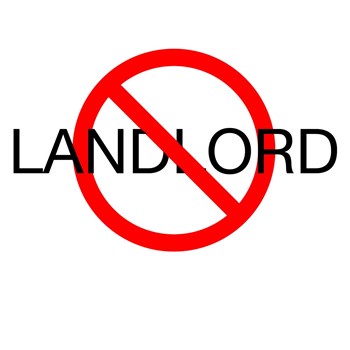
Many co-op shareholders and condo unit owners arrive in their respective communities after a history of living as renters. Often they carry with them certain ingrained assumptions and expectations from having lived under a landlord. These assumptions can cause friction – because while the board of a co-op association and/or its management company may take on some responsibilities similar to those of a landlord, these are very different entities operating under distinct mandates.
“Some people definitely don’t understand the boundaries between what they’re responsible for and what the association should handle,” says Bob Keegan, President with Dirigo Management Company in Portland, Maine. “They think they buy a unit, pay a monthly fee, and everything is taken care of. They’ll call us with an issue that doesn’t fall under management purview, and we’ll offer to send somebody over, but let them know that it will be at their expense. And they’re mystified because they pay that fee. So we’ll have to explain [that] when they bought their unit, they signed off on a whole bunch of documents explaining the delineation of responsibilities between individuals and the association. Of course, when you’re closing on a home, you don’t necessarily read all of those docs with the keenest eye, but you have to learn eventually.”
As far as recurring complaints that actually fall to the owners, Keegan cites things immediately outside of a townhome unit, like a light or doorbell. “Those items are powered via the owner’s meter box,” he says. “It may exist outside of a unit, but these are not common elements.”
Compared to the multifamily markets in places like New York and New Jersey, condos and HOAs in New England reign supreme while co-ops are more rare. But this doesn’t stop owners there from having unreasonable expectations for their board or managing agent as well.
In New York, some of the distinctions between co-op boards and rental landlords are laid out via the “warranty of habitability,” or New York Real Property Law Section 235-b. In short, because co-op shareholders occupy their units under a proprietary lease, they fall under the protection provided by the warranty of habitability that requires that the property be maintained in good repair. This means that the board may, for example, be required to repair interior walls and ceilings within shareholder apartments.
On the other hand, courts have ruled that co-op boards are not responsible for every amenity that would be covered under a typical landlord/tenant relationship. Much of this is subjective and is decided by the courts based on how a co-op board’s failure to maintain, repair or service a building element adversely affects the health and safety of residents.
Also, the warranty of habitability only extends to shareholders who reside within their apartments. Thus, a sublessee cannot claim damages against a co-op board for failure to maintain a standard of living, but he or she can claim damages against the shareholder renting out the apartment. That shareholder (who is legally the sublessee’s landlord) would then have to file a cross-claim against the board if the shareholder feels that the board has in some way abdicated its duty to uphold the maintenance and repair of some element.
Kevin R. McConnell, a partner at the law firm of Himmelstein, McConnell, Gribben, Donoghue & Joseph LLP in New York City, weighs in further on these distinctions. “Approximately four decades ago, an appellate court affirmed the applicability of the warranty of habitability to co-op apartments and proprietary leases,” he says. “The typical remedy for a breach of the warranty is for a tenant to be provided a rent abatement, which affects the landlord’s pocketbook in a typical rental situation; in a co-op situation, the pocketbook of the apartment corporation is being hurt. The difference there is that if the apartment corporation is acting as it should be in that maintenance is used to pay operating expenses, then the loss of any maintenance payments through an abatement affects the other tenant shareholders. But an abatement of rent is often the most effective means of getting the apartment corporation to address a repair that has caused a breach of warranty.
“Yet another method for getting repairs done is for a tenant-shareholder to commence an HP action,” McConnell continues. “The HP action is a tenant-initiated lawsuit in which the tenant-shareholder sues the apartment corporation in housing court, seeking a court order to do the necessary repairs. The tenant-shareholder can still pay maintenance such that the cash flow to the corporation is not interrupted.”
Outside of the legal jargon, there are other scenarios wherein co-op residents expect boards or managers to be their super, caretaker, boiler technician, etc. Understanding the boundaries between where a co-op resident’s responsibilities lie and where the board’s or manager’s begin is essential to successful cooperative living.
Read the Fine Print
Occasionally, a misunderstanding between resident and board/management will occur due to the former’s failure to fully understand the bylaws of the association. This can be avoided by – you guessed it – actually reading one’s bylaws.
“Sometimes in our business, repetition is key,” says Susan Fitzpatrick, Director of The Residences at The Ritz-Carlton, Westchester in White Plains, New York. “So we promote the bylaws of our association repeatedly. We cite them in newsletters, post them on our website, and maintain them at the front desk for anyone who complains about needing a repair. Our bylaws are very clear about responsibility, and as such we direct [rental residents] back to their ‘landlord,’ a.k.a., the owner of their apartment. When we send a letter to a resident, we attach the appropriate excerpt from the bylaws – chapter and verse – that backs up whatever we have decided within that letter. All employees are trained in the appropriate responses, and we’re extremely diligent with our messaging.”
And of course, shareholders have the ability to make some changes if the board is truly dropping the ball in regard to its duties. “When we counsel tenant-shareholders who view themselves as being in a straight ‘rental’ situation [with their board], we advise that they are actually in control,” says McConnell. “That with their voting power at annual meetings, they can throw out a board that is not performing as is required, and elect a new one that listens to the tenant-shareholders – rather than acting as an absentee landlord might.”
The Nitty Gritty
While most repairs in a rental apartment are handled by the landlord at no additional expense to the tenant, maintenance in a co-op comes out of residents’ monthly fees. As such, there’s a greater individual investment in what gets addressed and when. There are also repairs within apartments that fall to a co-op shareholder, which in a rental situation might be the purview of the landlord.
“An area of dispute I encounter with co-ops stems from how the responsibilities under their proprietary leases are different than those between tenants and landlords,” says Mitchell S. Zingman, Principal Member of law firm Zingman & Associates in New York City. “Co-op residents are completely responsible for the appliances in their unit, for example, whereas they would not be in a rental. I’ve had shareholders who don’t know why their stoves aren’t working, and look to hold the board responsible. But that’s actually on the shareholder. Really, anything that protrudes into the apartment is the domain of the shareholder. If a faucet is not working, or if a lead pan goes bad in a shower, well hey... that’s the shareholder’s problem. It is what it is, but shareholders sometimes have a hard time grasping that.
“In regard to repairs that do not fall on the tenant to arrange, I find that they’re usually handled by the managing agent,” he continues. “These things really aren’t coming to the board, unless the tenant reaches the conclusion that the managing agent is acting incompetently and, as such, sidesteps them – or goes as far as to ask the board to replace that agent.”
An underlying theme here is that many of these misunderstandings regarding tenant/board/management responsibilities can be avoided before they happen, should all parties involved familiarize themselves with the laws and governing documents under which their association operates. Surely this can seem like a significant to-do, but if an afternoon of studying up can help mitigate a drawn-out conflict between neighbors or management, it would seem worthwhile.
Of course, where issues of actual habitability – i.e., safety – are concerned, a resident should not hesitate to take up an issue with the board. Avoiding conflict is never worth putting the health of tenants at risk.
Mike Odenthal is a staff writer/reporter with New England Condominium.






Leave a Comment